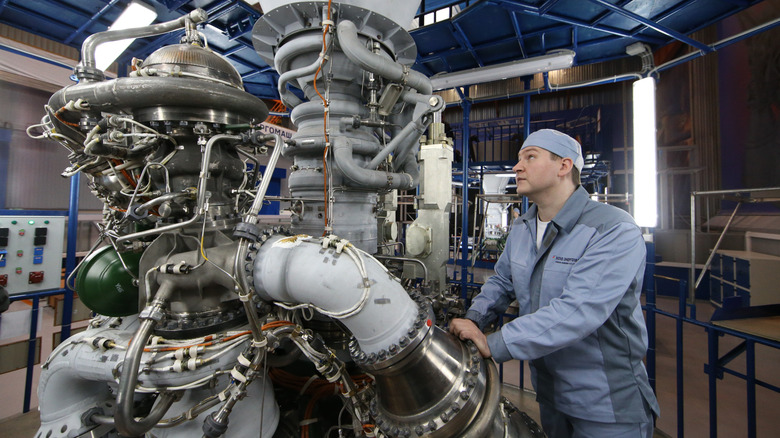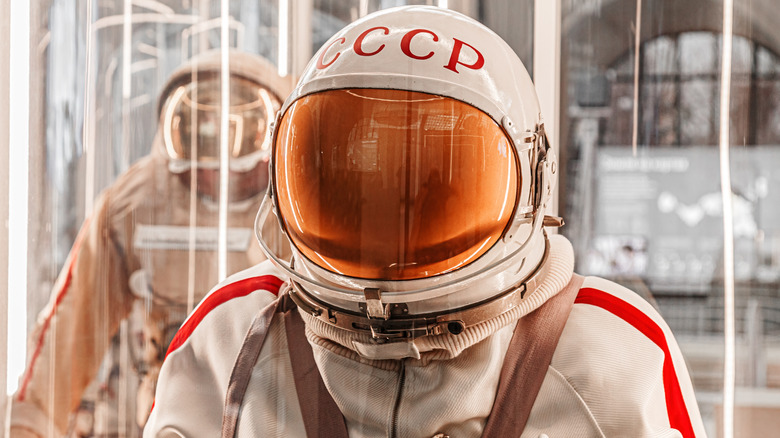Russia Has A Rocket Engine Problem – Here's What That Could Mean For Its Future In Space
There was a time when Russia and the United States were in a highly competitive race to the moon. But the 1960s came and went, with America emerging as the pioneer of space travel. The U.S. is still working to stay on top, as NASA is conducting its first lunar mission in over 50 years. However, Russia's space program did continue on and the country has achieved some important milestones since then. But thanks to Russia's lack of progress with rocket engine development, things now appear to be at a standstill.
That lack of innovation is due to Russia's space program, Roscosmos, being unable to get the components and funding it needs. Russia's war on Ukraine is a major reason for this, as international sanctions and ensuing supply issues have thrown some massive roadblocks in the way. Roscosmos continues to work on mission planning, which means it would be ready to go from a strategic standpoint. But without the properly equipped rocket engines Russian spacecraft need, missions could ultimately fall behind, resulting in delays or even cancellations.
Even the Russian Orbital Space Station (ROSS) could likely be affected by the country's recent problems. The ambitious project was meant to be the successor to Russia's MIR space station and was initially set to be launched in 2027. But unless Roscosmos can get back on track and make up any ground its already lost, there's no way of knowing if Russia will be able to actually follow through with that launch date.
Russia's struggles to keep up in space
Russia's space program is facing serious challenges beyond its stalling rocket engine development. Years of cooperative efforts with other space organizations, including NASA, have come to an end. This means the possibility for important partnerships with agencies outside of its own borders is likely over as well. But Russia's struggles go back even further, as the nation's RD-180 rocket engine, which was used in American spacecraft, was no longer being exported to the U.S. as of 2021.
The rise of private companies like SpaceX hasn't helped Russia's space efforts either. SpaceX has impacted the revenue Russia once earned from transporting NASA astronauts to the International Space Station, which took years to build. The country even criticized SpaceX back in 2020, citing what it believed to be a scheme to undercut prices, effectively leaving Russia out of the equation. Tensions escalated in late summer 2025 with the news that Russia was reportedly working on nuclear-powered weapons, aimed at taking out SpaceX's Starlink satellites.
As Russia's numerous setbacks continue to pile up, it's unknown if the country will move forward with its new plasma electric rocket engine. The initial plasma engine prototype had the promise of eventually making it to Mars in just a month or so, instead of years. Though it appeared that this new innovation, originally unveiled in early 2025, could potentially boost the country's space program to new heights, it's unclear if that's still the case.

